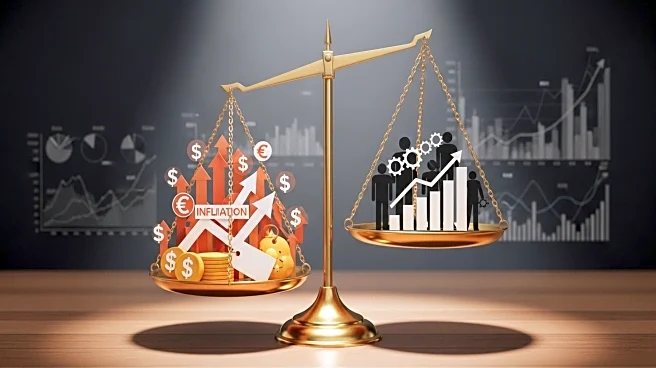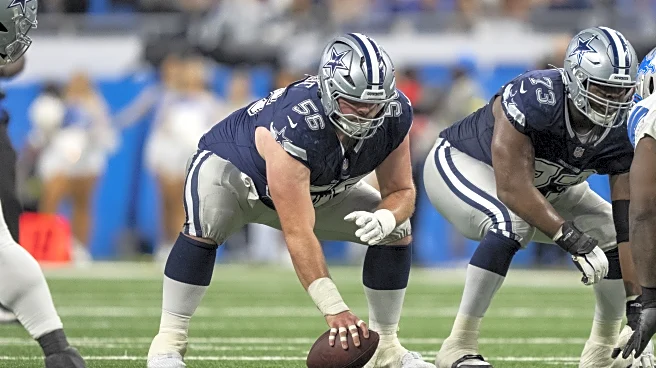What is the story about?
What's Happening?
Federal Reserve Chair Jerome Powell has highlighted the challenging situation faced by the central bank, with risks of faster-than-expected inflation and weak job growth raising concerns about the labor market's health. Speaking to the Greater Providence Chamber of Commerce, Powell noted the dangers of cutting interest rates too quickly, which could lead to a surge in inflation, or reducing rates too slowly, potentially causing unnecessary unemployment. The current interest rate, ranging from 4% to 4.25%, is considered high enough to counteract price pressures but allows flexibility to respond to economic developments. Powell emphasized that the Fed's policy is not on a preset course, with strong opinions emerging on both sides of the policy divide. Some regional Reserve Bank presidents advocate for caution in further cuts, while two Fed governors argue for more cuts to protect the job market. Powell acknowledged concerns about the job market, with recent job growth averaging around 25,000 per month, below the 'breakeven' rate needed to maintain the unemployment rate. Inflation remains somewhat elevated, driven by tariffs affecting goods prices.
Why It's Important?
The Federal Reserve's approach to interest rates is crucial for the U.S. economy, impacting inflation and employment levels. Powell's comments reflect the delicate balance the Fed must maintain to avoid exacerbating inflation while supporting job growth. The division among Fed officials highlights the complexity of economic policy decisions, with potential implications for businesses and consumers. The Trump administration's pressure on the Fed to cut rates further adds to the complexity, as political influences intersect with economic policy. The Fed's decisions will affect borrowing costs, consumer spending, and business investments, influencing overall economic growth. The ongoing debate within the Fed underscores the importance of carefully calibrated policy actions to sustain economic stability.
What's Next?
The Federal Reserve is expected to consider quarter-point reductions at its upcoming October and December meetings, with investors anticipating these moves. However, Powell's caution suggests that the Fed will closely monitor economic indicators before making further rate adjustments. The Trump administration's efforts to influence Fed policy, including the pending Supreme Court case regarding Governor Lisa Cook, may also impact future decisions. As Powell's term as chair ends in May, the selection of his successor could shape the Fed's policy direction. The Fed's focus will remain on ensuring that inflation does not become a persistent problem while supporting the labor market.
Beyond the Headlines
The Federal Reserve's policy decisions have broader implications for public trust in economic and political institutions. Powell's remarks about the scars left by historical crises highlight the challenges faced by democracies worldwide. The Fed's ability to navigate these challenges will influence public confidence in its ability to manage economic stability. The intersection of economic policy and political pressures underscores the need for transparent and effective decision-making to maintain trust in public institutions.















